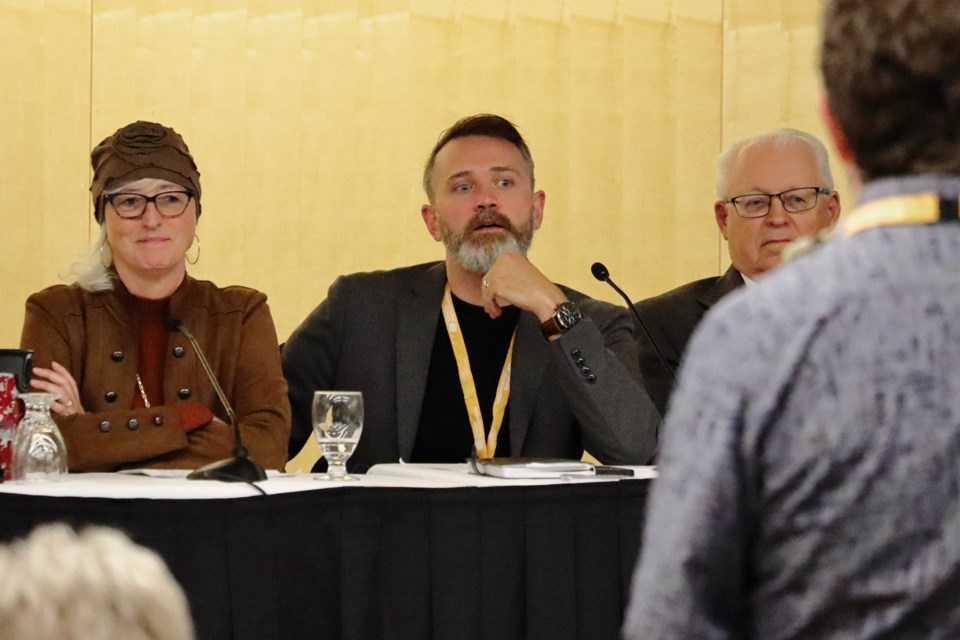As The Mountain View Regional Film Office grows, it is looking at new ways to make expansion sustainable for its member communities.
A partnership between Didsbury, Sundre, and Mountain View County, the MVRFO was established as Alberta’s first rural film office earlier this year.
During a panel presentation at the Alberta Municipalities Convention and Trade Show on Thursday, film office members John Allan, Richard Warnock, Angela Aalbers, Alexandra Ross, Rhonda Hunter, and Chris Atchison shared what they’ve learned working with the film industry and outlined possible next steps to build their organization.
One future move is to align municipal policies, Allan said.
“So that if they contact the Mountain View Regional Film Office, regardless of the municipality they contact, we will hopefully have a very similar policy that will allow them to work in a streamlined way.”
To grow the organization and expand capacity, Allan said they are fleshing out plans to sell memberships.
“One of the things that we need to do is come up with a sort of sustainable funding mechanism for the regional film office to promote it. Right now, we are using our own budgets,” Allan said. “One way to do sustainable funding, aside from, let's say, going to the ratepayers, is to sell memberships,” such as associate memberships and municipal memberships.
A film festival is also in the works, which Allan said has been a shared goal since the inception of the regional film office.
With big companies like Netflix spending upwards of $2 million an episode, the economic benefit for towns that host screen production crews can be massive. Before they start courting the industry, Didsbury Economic Development Officer Ross cautioned towns need to think about how it will affect their municipality.
“With the film industry, we have to showcase a lot of flexibility – a lot of flexibility,” Ross said.
Film crews need a large parking lot to set up a production site, which can on its own interfere with daily life for people in town. If the crew wants to use buildings, local departments must move quickly to approve any modifications that need to be made. Road closures can happen last-minute, “and you have to have your public works people right there,” Ross said.
“It’s really important that you have the buy-in of your community first and foremost, and that they are really embracing the film industry,” she said.
Alongside the demands and inconveniences of a fast-moving production schedule, Didsbury residents and businesses feel the benefits brought by the industry from the minute location scouts start arriving at local coffee shops, Ross said. And thanks to the popular television series Wynonna Earp filming in the area throughout its multi-year run, Didsbury has become a tourist destination for the show’s hardcore fans, keeping money coming into town after the cast and crew have all flown out.
“It's just unbelievable what a following this TV series has. They come from all over the world to see Didsbury and see where it was filmed,” Ross said. "It's quite amazing to see. And we were lucky enough to actually get some props to showcase, and they were really appreciative of being able to see those props."
“At the end of the day, it’s all about business retention,” Ross said, and as the regional film office becomes better established, everyone from local trades workers to caterers will be utilized more.



